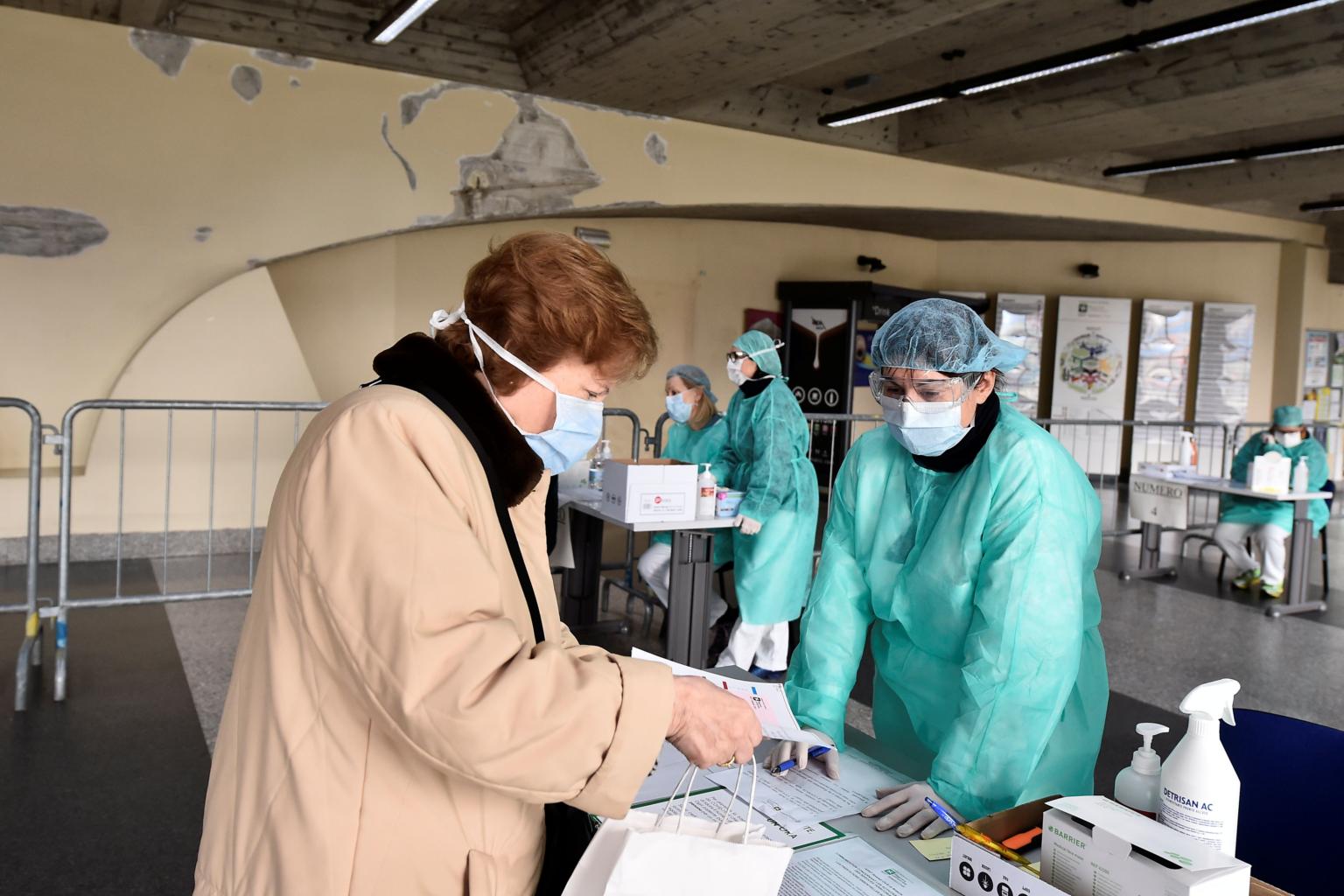Inadequate healthcare systems, coronavirus outbreaks in Italy, Iran and South Korea top worries: WHO
Sign up now: Get ST's newsletters delivered to your inbox

Medical workers wearing protective masks check patients at a medical checkpoint at the entrance of the Spedali Civili hospital in Brescia, Italy, on March 3, 2020.
PHOTO: REUTERS
Follow topic:
WASHINGTON - The spokesman for the World Health Organisation (WHO), Dr Margaret Harris, has just returned to Geneva to work with its coronavirus team.
She returned from the Democratic Republic of Congo which is grappling with an Ebola outbreak.
"We've had a terrible outbreak (of Ebola) there," she told The Straits Times. "It's gone on for a year and a half. And far too many people have died, 2,400 people."
"But this (coronavirus) has killed that many people in just a few weeks. That's some sort of comparison of the severity and enormity of the havoc this virus can wreak," she said in a phone interview from Geneva.
The WHO on Tuesday said about 3.4 per cent of reported Covid-19 victims have died from the disease globally. By comparison, seasonal flu generally kills far fewer than 1 per cent of those infected.
"The second major difference is that Covid-19 causes more severe disease than seasonal influenza. While many people globally have built up immunity to seasonal flu strains, Covid-19 is a new coronavirus to which no one has immunity," said WHO secretary-general Tedros Adhanom Ghebreyesus.
Dr Harris pointed to three countries of particular concern - Italy, Iran and South Korea.
"At the top of our concerns are the three countries with very big outbreaks that are really struggling with those outbreaks," she said.
"The other thing that concerns us is that it is a significantly lethal virus. So initially people were saying (it is a) 1 per cent death rate, but we're now seeing a large number of people die."
Every day, more people are going to need "very significant, very high level medical and nursing care for a long period, for two or three weeks," she said, putting pressure even in countries with strong public health systems.
"What worries us is when the health system doesn't have the ability to first of all recognise that they've got a problem," Dr Harris said.
But populations were responding, she noted.
"People are ensuring that their hands are always clean and they do not touch their mouth, nose and eyes with the hand if they can avoid it. Never do it unless you just cleaned the hand.
"People are getting that message and are doing those things. They're also complying with quarantine and understanding that this is a necessary measure because we do not have any of the tools that we use for other things.
"We do not have vaccination and we do not have any proven treatment. So we have to go back to the old fashioned methods. Not convenient, but they do work," she said.

